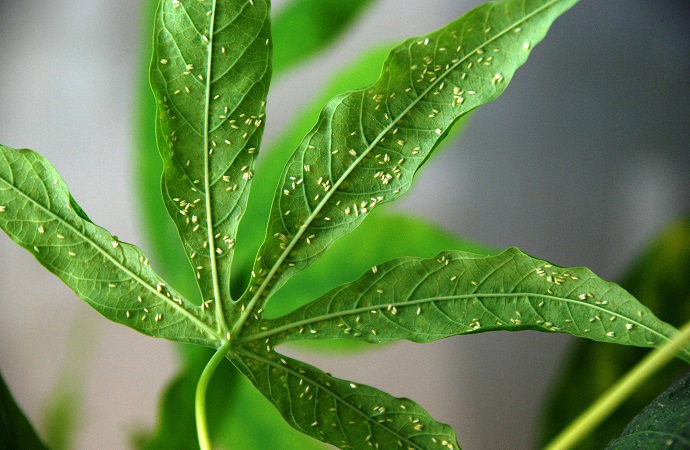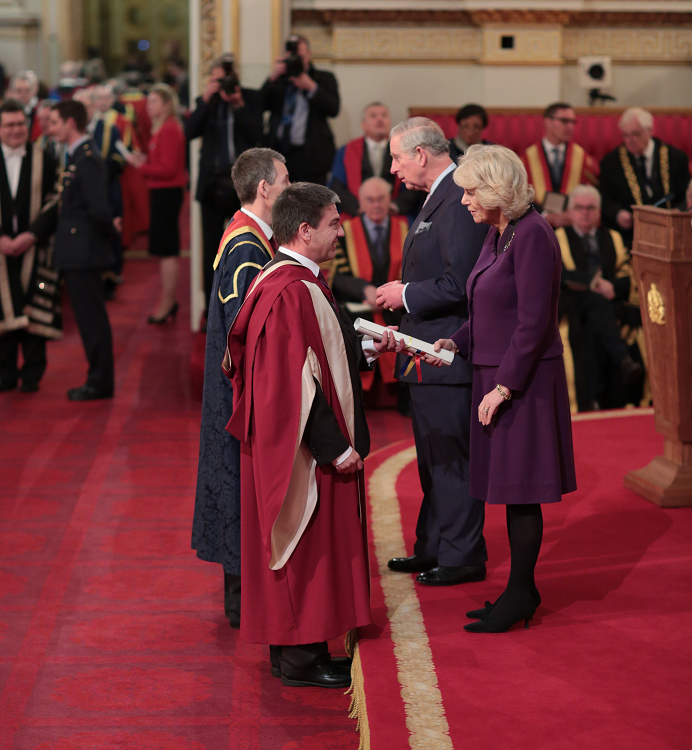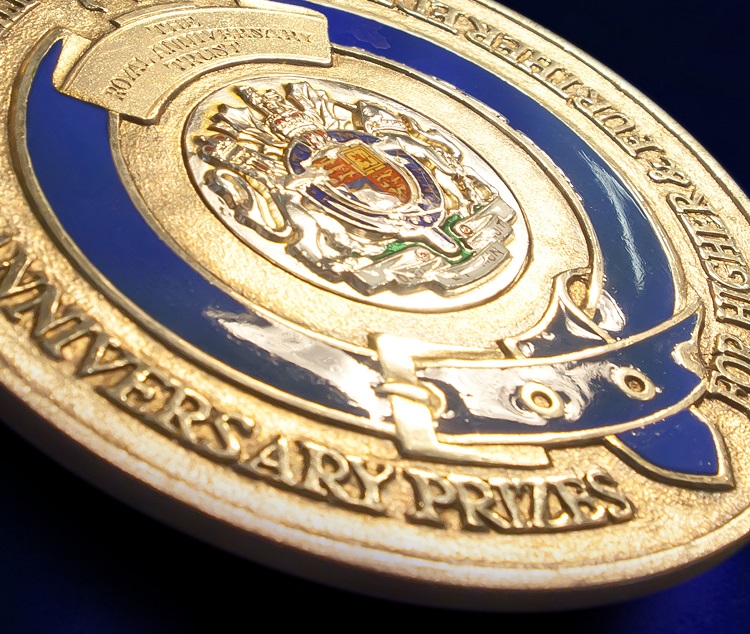For 25 years, NRI has been working to improve the cassava value chain, along its journey from farm to fork. Now that journey is taking NRI and cassava to Buckingham Palace – the official residence of Her Majesty Queen Elizabeth II – for the presentation of the Queen's Anniversary Prize awarded to the University of Greenwich for NRI's cassava work.
This prestigious prize applauds the work of our cassava programme whilst highlighting the work and ethos of the institute as a whole: we aim to use our specialist knowledge and experience to help poor farming communities, especially in Africa.
The prize also demonstrates how intricately cassava, Africa and NRI are linked. Originally from Latin America, cassava was first taken to Africa over 400 years ago, where it's been farmed extensively ever since. Africa is now the world's biggest producer of the crop. NRI has undertaken some 200 projects on cassava over the last 25 years, with a focus on Africa.
 Why cassava?
Why cassava?
For those who have never heard of cassava, you may have eaten it – as tapioca pudding or in prawn crackers – but for millions of people in sub-Saharan Africa, cassava forms the basis of their diet, keeping them 'food secure'. It can be prepared in a variety of ways, and is popular with farmers as it combines low levels of inputs, flexibility in planting and harvesting, and relative drought tolerance. For farmers selling surplus crops, it is an important source of income.
However, this crop has its challenges: in Africa, it's prone to diseases it never encountered in its native Latin America, which render the root inedible and reduce crop yield. It is also vulnerable to attack by pests such as whitefly, which both suck the plants dry and transmit devastating diseases. Cassava faces obstacles after harvesting, as producers have only 72 hours in which to process the root before it decomposes. Then the product has to get to market to be sold.
 How can farmers, producers and sellers of cassava in Africa improve their operations in order to make a profit?
How can farmers, producers and sellers of cassava in Africa improve their operations in order to make a profit?
This is where NRI's prizewinning work comes in, strategically targeting key areas along the cassava value chain, or the chain of activities needed to deliver a valuable product to the market. Specifically, our cassava programme works with farmers to combat pests and diseases on cassava plants in the field, works with processors to add value to the product through business development, and develops new products from cassava industry waste. Prof Andrew Westby, NRI Director adds, “A key part of our programme is our capacity-strengthening activities which support our African partners to continue finding sustainable solutions to these challenges.”
The result is increased incomes, greater food security and improved livelihoods for the cassava farmers, processors, producers and sellers involved in our projects.
An extraordinary journey So it is that cassava, a vitally important food security crop, found its way to Buckingham Palace for the presentation of the prize, on the morning of Thursday 25th February, 2016. The ceremony was presided over by Prince Charles and the Duchess of Cornwall. Collecting the prize were the University of Greenwich's Chancellor, Baroness Scotland, Vice-Chancellor, Professor David Maguire, and NRI Director, Professor Andrew Westby. They were accompanied by NRI staff and students representing the cassava programme, including Dr Sophie Bouvaine, Lora Forsythe, Saptarshi Ghosh, Dr Maruthi Gowda, Habibu Mugerwa, Joachim Nwezeobi, and Professor Keith Tomlins. After the ceremony, the university party attended a reception where Prince Charles and the Duchess of Cornwall met prize-winners informally.
So it is that cassava, a vitally important food security crop, found its way to Buckingham Palace for the presentation of the prize, on the morning of Thursday 25th February, 2016. The ceremony was presided over by Prince Charles and the Duchess of Cornwall. Collecting the prize were the University of Greenwich's Chancellor, Baroness Scotland, Vice-Chancellor, Professor David Maguire, and NRI Director, Professor Andrew Westby. They were accompanied by NRI staff and students representing the cassava programme, including Dr Sophie Bouvaine, Lora Forsythe, Saptarshi Ghosh, Dr Maruthi Gowda, Habibu Mugerwa, Joachim Nwezeobi, and Professor Keith Tomlins. After the ceremony, the university party attended a reception where Prince Charles and the Duchess of Cornwall met prize-winners informally.

Attending the dinner were the University of Greenwich's Chancellor, Baroness Scotland, Vice-Chancellor, Professor David Maguire, and Deputy Vice-Chancellor, Javier Bonet. Representing the cassava programme were NRI’s Professor John Colvin, Dr Andy Graffham, Adrienne Martin, Professor Susan Seal and NRI Director, Professor Andrew Westby.
The university party’s guests were:
- Professor Kolawole Adebayo, Visiting Professor, NRI & Federal University of Agriculture at Abeokuta, Nigeria
- Jean-Pierre Halkin, Head of Rural Development, Food and Nutrition Security at European Commission
- Marianne Hay, Court Member, University of Greenwich
- Stephen Howlett, Pro-Chancellor & Chair of the University of Greenwich Court
- Dr Katherine Kahn, Senior Program Officer, Science and Technology, Bill & Melinda Gates Foundation
- Mark Lowcock, Permanent Secretary for the Department for International Development
- Professor Guy Poulter, Director of AGRINATURA-EEIG
- Anna Swaithes, Director of Sustainable Development, SABMiller
- Dr Graham Thiele, Director, CGIAR Research Program on Roots, Tubers, and Bananas
- Kelly Tolhurst, MP for Rochester and Strood
Links: Cassava programme website | Announcement of prize | University of Greenwich press release |
For more on the Queen's Anniversary Prizes 2015: http://www.royalanniversarytrust.org.uk/


